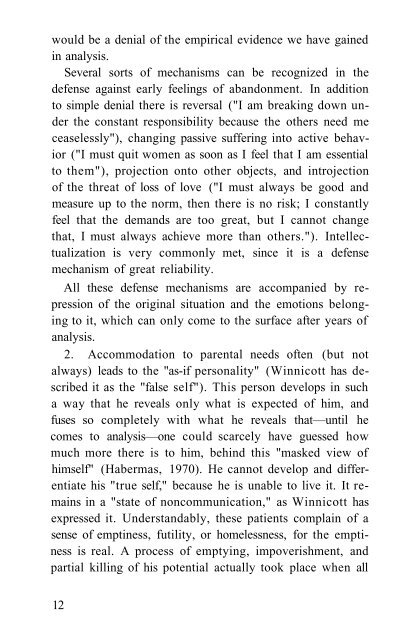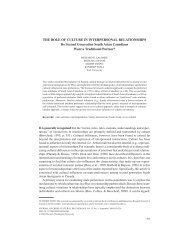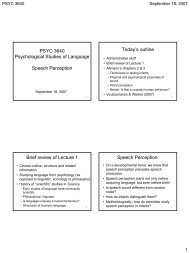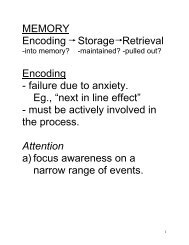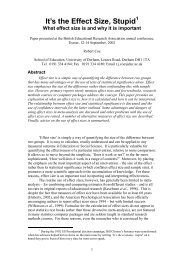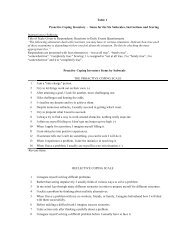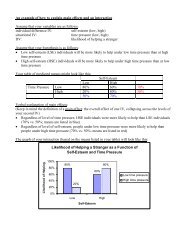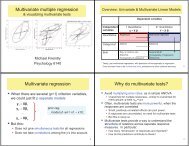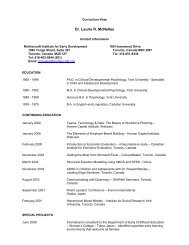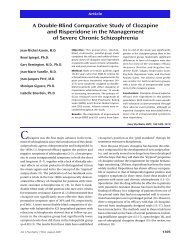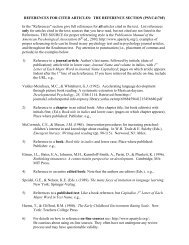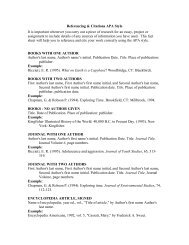The Drama of the Gifted Child (The Search for the True Self)
The Drama of the Gifted Child (The Search for the True Self)
The Drama of the Gifted Child (The Search for the True Self)
You also want an ePaper? Increase the reach of your titles
YUMPU automatically turns print PDFs into web optimized ePapers that Google loves.
would be a denial <strong>of</strong> <strong>the</strong> empirical evidence we have gained<br />
in analysis.<br />
Several sorts <strong>of</strong> mechanisms can be recognized in <strong>the</strong><br />
defense against early feelings <strong>of</strong> abandonment. In addition<br />
to simple denial <strong>the</strong>re is reversal ("I am breaking down under<br />
<strong>the</strong> constant responsibility because <strong>the</strong> o<strong>the</strong>rs need me<br />
ceaselessly"), changing passive suffering into active behavior<br />
("I must quit women as soon as I feel that I am essential<br />
to <strong>the</strong>m"), projection onto o<strong>the</strong>r objects, and introjection<br />
<strong>of</strong> <strong>the</strong> threat <strong>of</strong> loss <strong>of</strong> love ("I must always be good and<br />
measure up to <strong>the</strong> norm, <strong>the</strong>n <strong>the</strong>re is no risk; I constantly<br />
feel that <strong>the</strong> demands are too great, but I cannot change<br />
that, I must always achieve more than o<strong>the</strong>rs."). Intellectualization<br />
is very commonly met, since it is a defense<br />
mechanism <strong>of</strong> great reliability.<br />
All <strong>the</strong>se defense mechanisms are accompanied by repression<br />
<strong>of</strong> <strong>the</strong> original situation and <strong>the</strong> emotions belonging<br />
to it, which can only come to <strong>the</strong> surface after years <strong>of</strong><br />
analysis.<br />
2. Accommodation to parental needs <strong>of</strong>ten (but not<br />
always) leads to <strong>the</strong> "as-if personality" (Winnicott has described<br />
it as <strong>the</strong> "false self"). This person develops in such<br />
a way that he reveals only what is expected <strong>of</strong> him, and<br />
fuses so completely with what he reveals that—until he<br />
comes to analysis—one could scarcely have guessed how<br />
much more <strong>the</strong>re is to him, behind this "masked view <strong>of</strong><br />
himself" (Habermas, 1970). He cannot develop and differentiate<br />
his "true self," because he is unable to live it. It remains<br />
in a "state <strong>of</strong> noncommunication," as Winnicott has<br />
expressed it. Understandably, <strong>the</strong>se patients complain <strong>of</strong> a<br />
sense <strong>of</strong> emptiness, futility, or homelessness, <strong>for</strong> <strong>the</strong> emptiness<br />
is real. A process <strong>of</strong> emptying, impoverishment, and<br />
partial killing <strong>of</strong> his potential actually took place when all<br />
12


